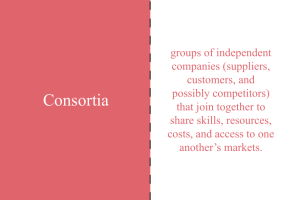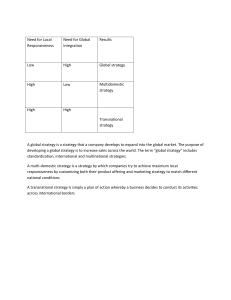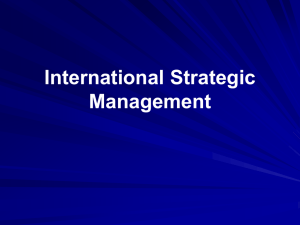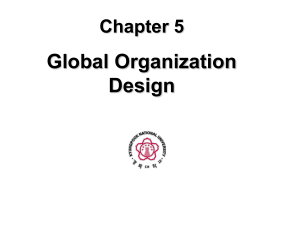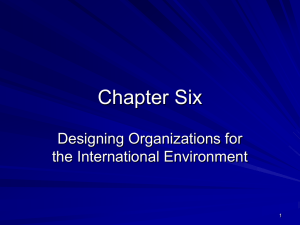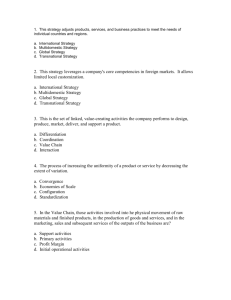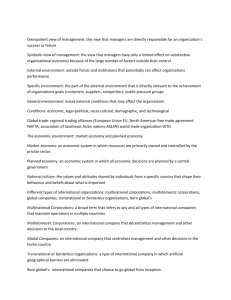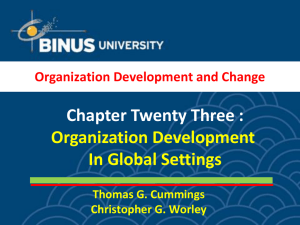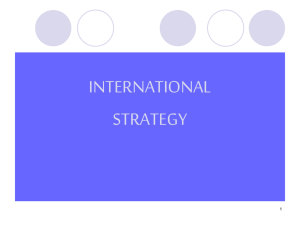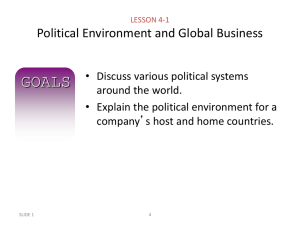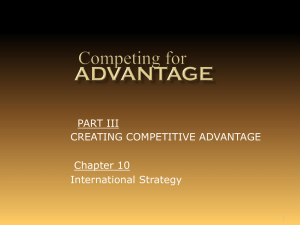Chapter 6 Glossary consortia groups of independent companies
advertisement
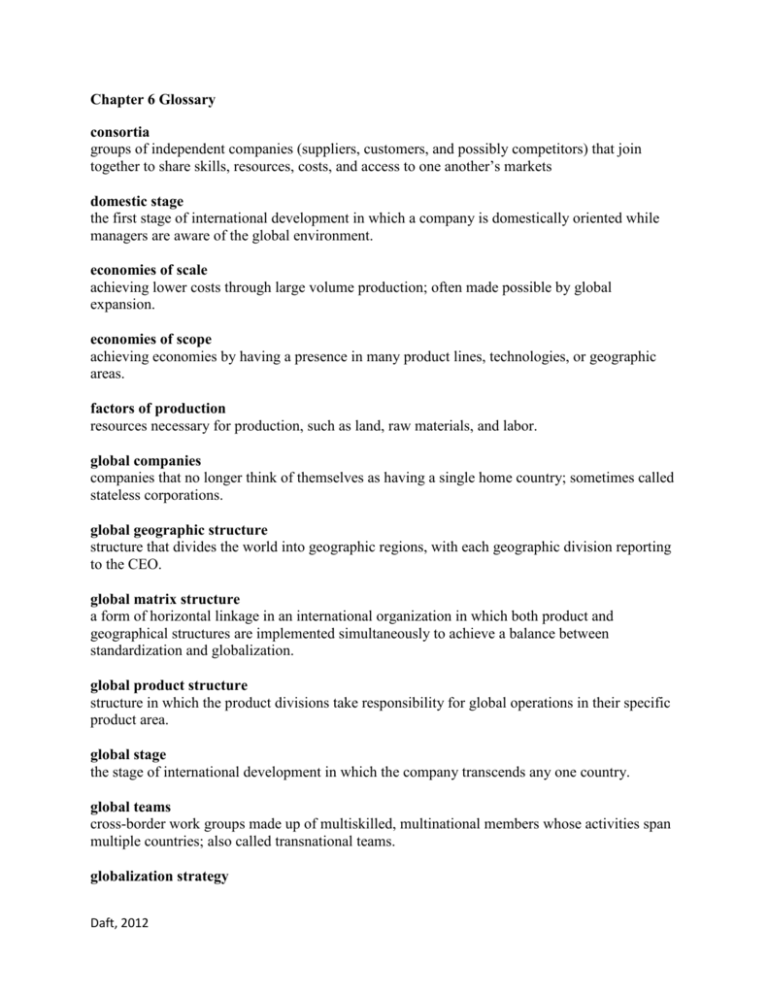
Chapter 6 Glossary consortia groups of independent companies (suppliers, customers, and possibly competitors) that join together to share skills, resources, costs, and access to one another’s markets domestic stage the first stage of international development in which a company is domestically oriented while managers are aware of the global environment. economies of scale achieving lower costs through large volume production; often made possible by global expansion. economies of scope achieving economies by having a presence in many product lines, technologies, or geographic areas. factors of production resources necessary for production, such as land, raw materials, and labor. global companies companies that no longer think of themselves as having a single home country; sometimes called stateless corporations. global geographic structure structure that divides the world into geographic regions, with each geographic division reporting to the CEO. global matrix structure a form of horizontal linkage in an international organization in which both product and geographical structures are implemented simultaneously to achieve a balance between standardization and globalization. global product structure structure in which the product divisions take responsibility for global operations in their specific product area. global stage the stage of international development in which the company transcends any one country. global teams cross-border work groups made up of multiskilled, multinational members whose activities span multiple countries; also called transnational teams. globalization strategy Daft, 2012 the standardization of product design, manufacturing, and marketing strategy throughout the world. international division a division organized to handle business in other countries. international stage the second stage of international development, in which the company takes exports seriously and begins to think multidomestically. joint venture a separate entity created with two or more active firms as sponsors. multidomestic manager mindset in which competitive issues in each country are viewed independently of other countries; the company deals with each country individually. multidomestic strategy strategy in which competition in each country is handled independently of competition in other countries. multinational stage the stage of international development in which a company has marketing and production facilities in many countries and more than one-third of its sales outside its home country. power distance the level of inequality people are willing to accept in an organization. standardization policies that ensure all branches of the company at all locations operate in the same way. stories narratives based on true events that are transnational model a form of horizontal organization that has multiple centers, subsidiary managers who initiate strategy and innovations for the company as a whole, and unity and coordination achieved through corporate culture and shared vision and values. uncertainty avoidance within a cultural group, the degree to which members are uncomfortable with uncertainty and ambiguity and thus support beliefs that promise certainty. Daft, 2012
